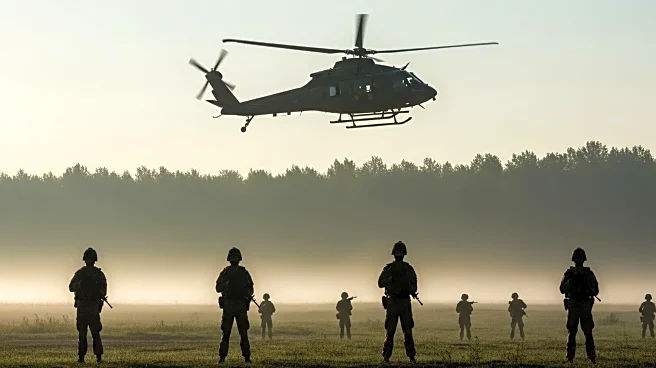What is the story about?
What's Happening?
The Czech Republic has dispatched a special operations helicopter unit to Poland to assist in combating Russian drone activities. This deployment, which includes three Mi-171Sh helicopters and up to 150 soldiers, was announced by the Czech Minister of Defense, Jana Černochová. The troops are expected to be operational within days and will remain in Poland for up to three months. This move is part of a broader effort to bolster regional security in response to increased Russian military activities.
Why It's Important?
This deployment underscores the growing concerns among European nations regarding Russian military maneuvers and the potential threat they pose to regional stability. By sending military support to Poland, the Czech Republic is not only strengthening its ties with a fellow NATO member but also contributing to a collective defense strategy aimed at deterring Russian aggression. This action may influence other NATO countries to enhance their military readiness and cooperation in Eastern Europe, potentially leading to a more robust and unified response to security threats in the region.
What's Next?
The Czech troops and helicopters are expected to begin operations shortly after their arrival in Poland. This deployment may prompt further discussions among NATO allies about additional measures to counteract Russian military activities. The situation could lead to increased military collaboration and exercises in Eastern Europe, as well as potential diplomatic engagements aimed at de-escalating tensions with Russia.
Beyond the Headlines
The deployment highlights the strategic importance of Poland as a frontline state in the NATO alliance, serving as a buffer against potential Russian incursions. It also raises questions about the long-term military commitments required from NATO members to ensure regional security. The presence of Czech forces in Poland may also have implications for domestic politics within the Czech Republic, as public opinion on military involvement abroad could influence future defense policies.
















